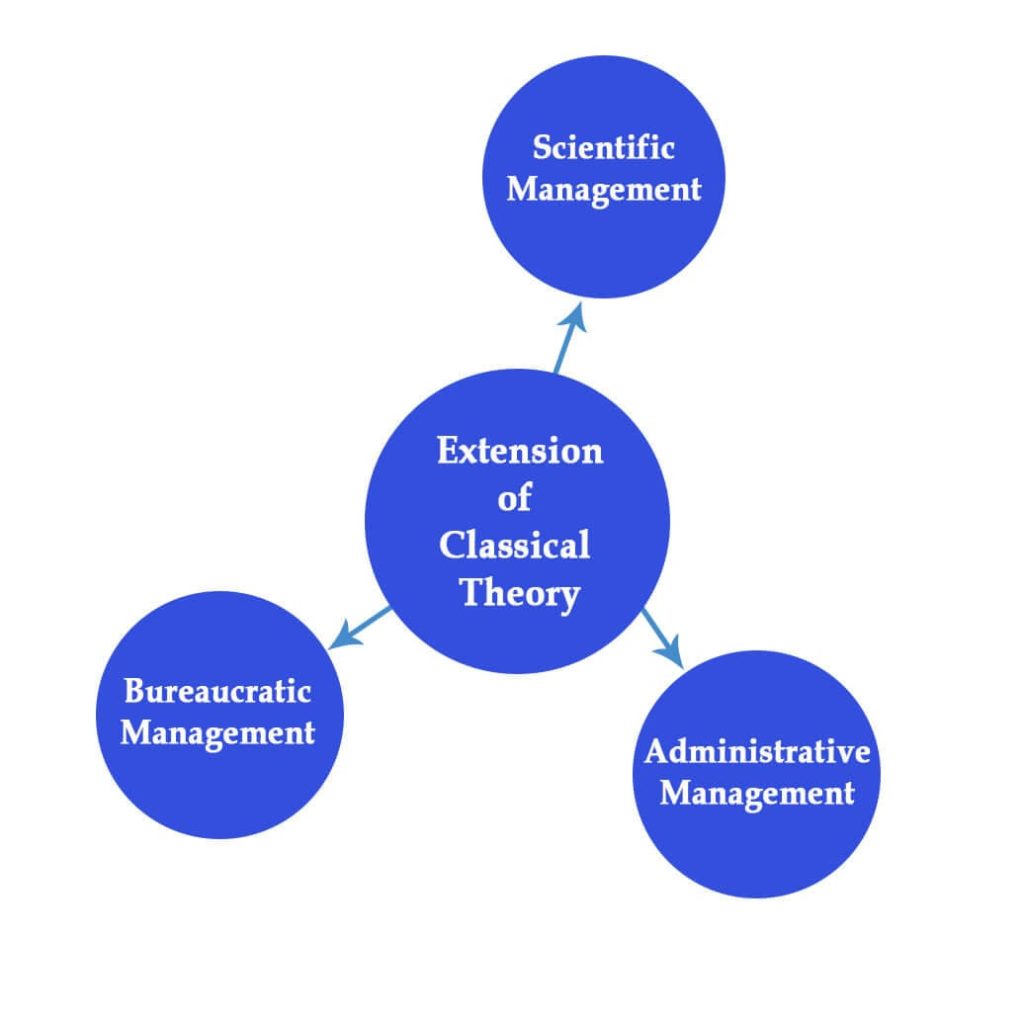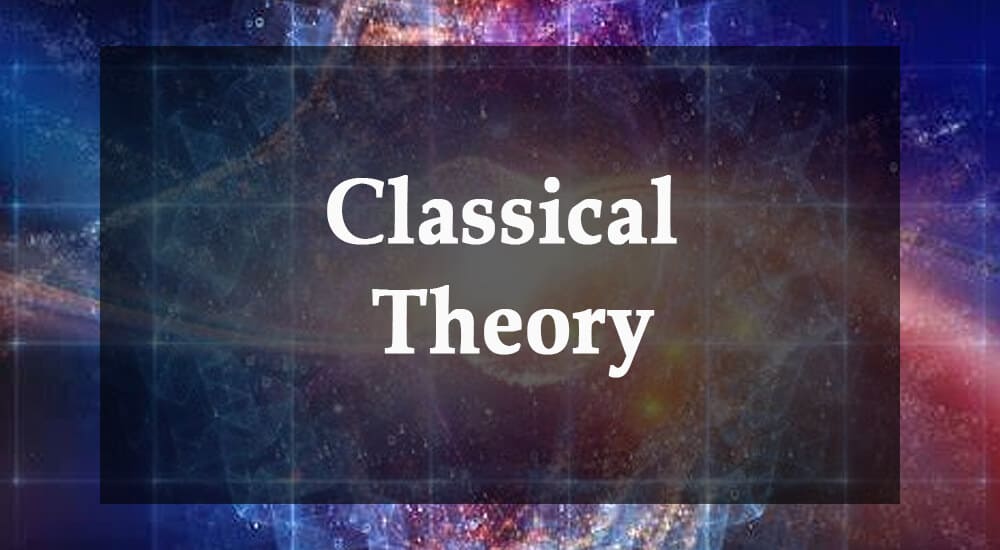The classical theory is also known as the traditional theory. It considers the organization a machine and its employees part of the machine. Here, the focus is on centralized authority and skill specialization. Employees are grouped according to their skills and motivated through incentives to drive efficiency.
In American management studies, classical theory emerges as a foundational concept. Just as a mechanic views a car’s parts as essential to its overall functioning, the classical theory perceives an organization as a machine and its employees as vital components of that machine. The main thrust is to focus on centralizing authority and leveraging skill specialization to foster efficiency.
The organizational hierarchy is divided into top-level, middle-level, and supervisors. Work is divided according to employees’ skills. According to the Project Management Institute (PMI), the strategic compartmentalization of roles can enhance project delivery and efficiency.
The focus is on supervision, incentives, and wages to motivate employees to perform better.
Characteristics of Classical Theory
- It divides employees according to specialty, resulting in a highly efficient system.
- It focuses on a well-defined hierarchical structure and chain of command.
- It ensures job security for employees and better career growth.
- It results in faster decision-making and quick implementation.
- Classical theory is more concerned with production than employees.
- Classical theory prioritizes production metrics over employee well-being, as noted by the U.S. Small Business Administration.
Extension of Classical Theory

- Scientific Management: This theory focuses on the scientific method of accomplishing tasks. It divides employees based on their interests and skills and allows managers to motivate their employees to perform better.
- Administrative Management: This theory assumes that management skills can improve organizational performance. It focuses on managerial performance and uses process improvement and administrative procedures.
- Bureaucratic Management: This theory proposes running the organization with a rigid structure and a well-defined hierarchy governed by tough procedures and rules. The bureaucratic theory focuses on a robust bureaucratic structure to run the operations. A bureaucracy is a system operated by officials who follow well-structured rules. This idea resonates with Max Weber’s perspectives, a sociologist whose work is frequently cited in American sociology departments.
Advantages of Classical Theory
- Clear Hierarchical Structure: Establishes a defined chain of command, which ensures accountability and clear roles within an organization.
- Efficiency and Productivity: Focuses on task specialization, leading to improved efficiency and higher productivity.
- Standardization: Promotes uniformity and consistency in processes, reducing errors and increasing reliability.
- Predictability and Control: Formal rules and procedures predict organizational activities, ensuring operational control.
- Focus on Output: Aim to maximize output by optimizing workflows and eliminating unnecessary tasks.
- Skill Development: Emphasizes division of labor, allowing employees to become specialists in their roles.
- Strong Discipline and Coordination: Encourages discipline, proper supervision, and team coordination.
Disadvantages of Classical Theory
- Lack of Flexibility: Rigid structures and standardized processes may stifle innovation and adaptability in a dynamic environment.
- Focus on Authority Over Collaboration: Overemphasis on hierarchy can lead to poor communication and reduced teamwork.
- Human Element Overlooked: This approach treats workers more as machines or units of production, ignoring their psychological and social needs.
- Resistance to Change: Heavily structured environments can be slow to respond to change, impacting competitiveness.
- Monotony and Employee Dissatisfaction: Highly specialized and repetitive tasks can lead to boredom, disengagement, and job dissatisfaction.
- Neglect of Informal Networks: Fails to recognize the value of informal organizational communication and relationships.
- Potential for Abuse of Power: Concentration of authority at higher levels can lead to leaders’ misuse or abuse of power.
- Short-term Focus: Overemphasizing efficiency and productivity might overshadow long-term strategic goals and employee well-being.
Summary
The classical theory emphasizes organizations instead of employees. It concerns the organizational hierarchy and chain of command, which carry out an organization’s activities. This theory considers an organization a machine, and its employees are its parts. The parts must be in their best form for a machine, or the employee must be efficient and skilled for a better-performing organization.
Classical theory reviews the whole organization, finds errors, and takes corrective and necessary preventive action to prevent them from occurring again.

Thanks for this information
Thank you for this short but informative Theory on Classical Theory in PA.
thanks a lot
Very fantastic indeed.
may u be blessed
well said in simple language. thank you so much